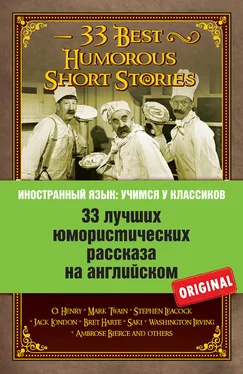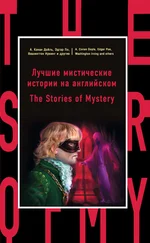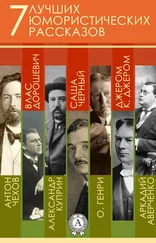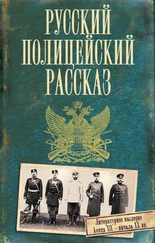The chief ordered three cheers for ‘Darley, one of the finest minds on the force,’ and then commanded that he be telegraphed to come home and receive his share of the reward.
So ended that marvelous episode of the stolen elephant. The newspapers were pleasant with praises once more, the next day, with one contemptible exception. This sheet said, ‘Great is the detective! He may be a little slow in finding a little thing like a mislaid elephant he may hunt him all day and sleep with his rotting carcass all night for three weeks, but he will find him at last if he can get the man who mislaid him to show him the place!’
Poor Hassan was lost to me forever. The cannonshots had wounded him fatally, he had crept to that unfriendly place in the fog, and there, surrounded by his enemies and in constant danger of detection, he had wasted away with hunger and suffering till death gave him peace.
The compromise cost me one hundred thousand dollars; my detective expenses were forty-two thousand dollars more; I never applied for a place again under my government; I am a ruined man and a wanderer on the earth but my admiration for that man, whom I believe to be the greatest detective the world has ever produced, remains undimmed to this day, and will so remain unto the end.
A Complaint about Correspondents, Dated in San Francisco
What do you take us for on this side of the continent? I am addressing myself personally, and with asperity, to every man, woman and child east of the Rocky Mountains. How do you suppose our minds are constituted, that you will write us such execrable letters – such poor, bald, uninteresting trash? You complain that by the time that a man has been on the Pacific coast for six months, he seems to lose all concern about things and matters and people in the distant East, and ceases to answer the letters of his friends and even his relatives. It is your own fault. You need a lecture on the subject – a lecture which ought to read about as follows: —
There is only one brief, solitary law for letter-writing, and yet you either do not know that law, or else you are so stupid that you never think of it. It is very easy and simple: – Write only about things and people your correspondent takes a living interest in.
Can you remember this law, hereafter, and abide by it? If you are an old friend of the person you are writing to, you know a number of his acquaintances, and you can rest satisfied that even the most trivial things you can write about them will be read with avidity out here on the edge of sunset.
Yet how do you write? – how do the most of you write? Why, you drivel and drivel and drivel along in your wooden-headed way about people one never heard of before, and things which one knows nothing at all about and cares less. There is no sense in that. Let me show up your style with a specimen or so. Here is a paragraph from my Aunt Nancy’s last letter – received four years ago, and not answered immediately – not at all, I may say: —
St. Louis, 1862
‘Dear Mark! – We spent the evening very pleasantly at home yesterday. The Rev. Dr. Mucklin and his wife, from Peoria, were here. He is an humble labourer in the vineyard, and takes his coffee strong. He is also subject to neuralgia – neuralgia in the head – and is unassuming and prayerful. There are few such men. We had soup for dinner likewise. Although I am not fond of it. O Mark! why don’t you try to lead a better life? Read II. Kings, from chap. 2 to chap. 24 inclusive. It would be so gratifying to me if you experience a change at heart. Poor Mrs. Gabrick is dead. You did not know her. She had fits, poor soul. On the 14th the entire army took up the line of march from —’
I always stopped here, because I knew what was coming – the war news, in minute and dry detail – for I could never drive it into those numskulls of the overland telegraph enabled me to know here in San Francisco every day all that transpired in the United States the day before, and that the pony express brought me the exhaustive details of all the matters pertaining to the war at least two weeks before their letters could possibly reach me. So I naturally skipped their stale war reports, even at the cost of slipping the inevitable suggestions to read this, that, and other batch of chapters in the Scriptures, with which they were interlarded in intervals, like snares wherewith to entrap an unwary sinner.
Now what was the Rev. Mucklin to me? Of what consequence was it to me that he was ‘an humble labourer in the vineyard’, and ‘took his coffee strong’? – and was ‘unassuming’, and ‘neuralgic’, and ‘prayerful’? Such a strong conglomeration of virtues could only excite my admiration – nothing more. It could awake no living interest. That there are few such men, and that we had soup for dinner, is simply gratifying – that is all. ‘Read twenty-two chapters of II. Kings’ is a nice shell to fall in the camp for the man who is not studying for the ministry. The intelligence of that ‘poor Mrs. Gabrick’ was dead, aroused no enthusiasm – mostly because of the circumstance that I had never heard of her before, I presume. But I was glad she had fits – although a stranger.
Don’t you begin to understand, now? Don’t you see that there is not a sentence in that letter of any interest in the world to me? I had a war news in advance of it; I could get a much better sermon at church when I needed it; I didn’t care anything about poor Gabrick, not knowing deceased; nor yet the Rev. Mucklin, not knowing him either. I said to myself, ‘Here is not a word about Mary Ann Smith – I wish there was; nor about Georgiana Brown, or Zeb Leavenworth, or Sam Bowen, or Strother Wiley – or about anybody else I care a straw for.’ And so, as this letter was just of a pattern with all that went before it, it was not answered, and one useless correspondence ceased.
My venerable mother is a tolerably good correspondent – she is above the average, at any rate. She puts on her spectacles and takes her scissors and wades into a pile of newspapers, and slashes out column after column – editorials, hotel arrivals, poetry, telegraph news, advertisements, novelettes, old jokes, recipes of making pies, cures for ‘biles’ – anything that goes handy; it don’t matter for her; she’s entirely impartial; she slashes out a column, and runs her eye down it over her spectacles – (she looks over them because she can’t see through them, but she prefers them to her more serviceable ones because they have got gold rimes to them) – runs her eye down the column, and says, ‘Well, it’s from a St. Louis paper, any way,’ and jams it into the envelope along with her letter. She writes about everybody I ever knew or ever heard of; but unhappily, she forgets that when she tells me that ‘J.B. is dead,’ or that ‘W.L. is going to marry T.D.,’ and ‘B.K. and R.M. and L.P.J. have all gone to New Orleans to live,’ it is more than likely that years of absence may have so dulled my recollection of once familiar names, that their unexplained initials will be as unintelligible as Hebrew unto me. She never writes a name in full, and so I never know whom she is talking about. Therefore I have to guess; and this was how it came that I mourned the death of Bill Kribben when I should have rejoiced over the dissolution of Ben Kenfuron. I failed to cipher the initials out correctly.
The most useful and interesting letters we get here from home are from children seven or eight years old. This is petrified truth. Happily they have nothing to talk about but home, and neighbours, and family – things their betters think unworthy of transmission thousand of miles. They write simply and naturally, and without straining for effect. They tell all they know, and then stop. They seldom deal in abstractions, or moral homilies. Consequently their epistles are brief; but, treating as they do of familiar persons and scenes, always entertaining. Now, therefore, if you would learn the art of letter-writing, let a little child teach you. I have preserved a letter from a small girl eight years of age – preserved it as a curiosity, because it was the only letter I ever got from the States that had any information in it. It runs thus:
Читать дальше
Конец ознакомительного отрывка
Купить книгу












